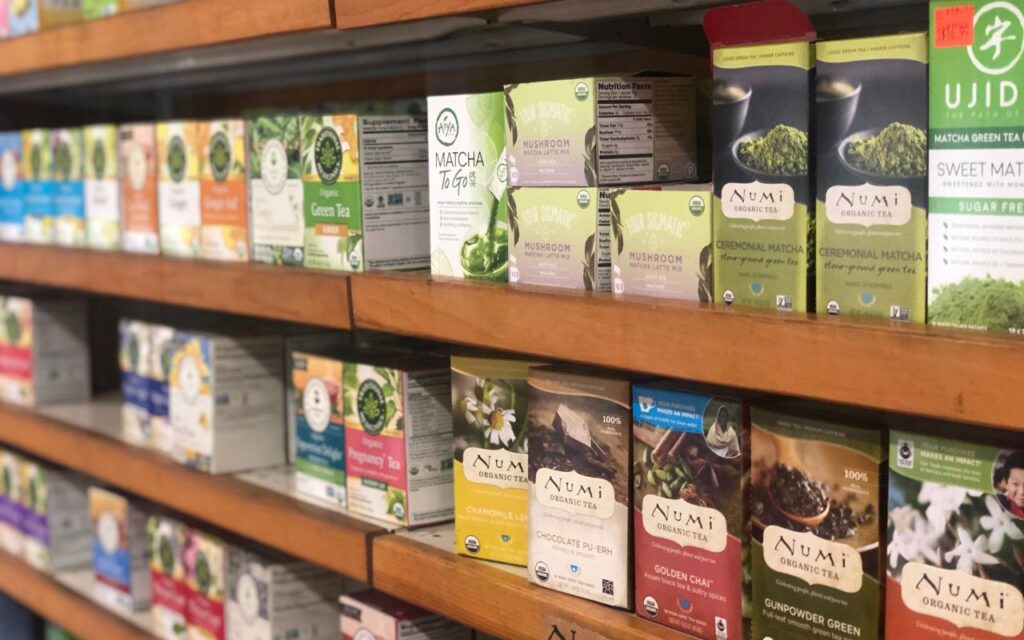Learn about all the health benefits of green tea related to the EGCG green tea compound and how to prepare green tea in a healthy way in this nutrition guide.
Drinking a cup of green tea, whether hot, cold or bottled, has become an increasingly popular pastime among Americans. Today, you can find green tea in everything from shampoo and cream to waffles and ice cream. Popular in many countries across Asia, this plant-based drink has a lot going for it: bold flavor, a zero-calorie boost of light energy, and a growing body of research showing potential health benefits.

The history of green tea
According to legend, green tea was first discovered in China and was widely used during the Han Dynasty for its medicinal properties. (25-220 AD). Later, during the Tang Dynasty (600-900 AD), people began drinking green tea for the sheer pleasure of it.
about what Black tea vs green tea? Like black tea and oolong tea, green tea is made from tea tree Plant leaves. The uniqueness of green tea is that mature tea leaves are steamed, rolled, and dried directly after being picked without being allowed to oxidize, so the taste of the tea produced is closest to that of fresh leaves. In contrast, black and oolong teas are oxidized, turning the leaves brown and giving them a rich flavor.
Green tea efficacy science
Scientists have discovered high levels of catechin flavonoid compounds in brewed tea, which have anti-inflammatory, antioxidant and anti-cancer effects. Green tea specifically contains the catechin epigallocatechin gallate (EGCG), which may be the source of green tea’s health benefits. EGCG green tea compound is a powerful antioxidant. Antioxidants reduce high levels of harmful free radicals in our body by neutralizing them. Antioxidants keep free radicals in the body at safe levels.
Drinking green tea has many health benefits. In addition to their antioxidant effects, these beneficial compounds in green tea have anti-cancer and anti-inflammatory properties and have been linked to benefits for healthy weight and improved cognitive function.

Potential anti-cancer benefits of green tea
Research shows that green tea can inhibit the development and formation of cancer in animals; it is associated with protection in many parts of the body, such as the skin, lungs, mouth, stomach, colon, pancreas, bladder and prostate. Currently, more research is being conducted on humans. Green tea, in particular, has been linked to inhibiting tumor growth. The EGCG and quercetin in green tea appear to have anti-cancer properties. A study examining the effects of green tea on mammary tumors in mice showed that when EGCG was administered orally along with quercetin, tumor volume was reduced compared to the control group. A 2017 study investigated how EGCG affects breast cancer cells. EGCG found in green tea promoted apoptosis (cell death) in cancer cells at a significantly higher rate than the control group. Scientists believe that EGCG promotes the production of a gene called P53. Research shows that P53 is responsible for tumor suppression. More studies in humans are needed to verify these findings.
Green tea benefits for healthy weight
Drinking green tea before a meal has been shown to improve satiety (feelings of fullness). A clinical study published in 2017 looked at metabolic and hormonal factors in overweight and obese women with PCOS and investigated the impact of green tea intake on these factors. The study looked at 60 subjects and randomly divided them into two groups: one group received green tea and the other received a placebo. Participants’ weights were measured before and after the twelve-week trial. At the end of twelve weeks, women in the experimental group had lost a statistically significant amount of weight compared to the control group. A randomized controlled trial studied 14 subjects who were assigned to drink 300 ml of green tea or water. Those in the green tea group reported greater feelings of fullness. Although the study was small, it suggests green tea may help maintain or reduce weight. More research is needed to understand these potential benefits.

Anti-inflammatory benefits of green tea
Regular green tea consumption may reduce the risk of inflammation-related diseases, such as cardiovascular disease, type 2 diabetes, and metabolic syndrome. Drinking green tea increases levels of adiponectin, a hormone released in fat tissue. When adiponectin levels rise, the production of foam cells (which play a key role in atherosclerosis) and levels of interleukin-6 (high levels in the body are associated with inflammation) are suppressed.
Green tea improves cognitive function
Researchers have been studying the risk of cognitive impairment in relation to the level of inflammation in the body. The properties of green tea have been shown to reduce inflammation. When inflammation markers are lower, nerve inflammation is reduced. These effects are thought to help prolong the onset of Alzheimer’s and dementia. However, more research must be done before conclusions can be drawn.

Looking to the future of green tea
Despite ongoing research on green tea, gaps remain in the literature. Green tea has been linked to many other health benefits, such as a reduced risk of CVD, metabolic syndrome, and type 2 diabetes, but we need more research on the health benefits of green tea before we can understand its full health potential. In the meantime, there doesn’t seem to be any downside to drinking green tea, unless you’re sensitive to its caffeine content. How much caffeine does green tea contain? Contains 9 – 50 mg per cup, compared to 72 – 130 mg for coffee.

How to make green tea
If you use bagged green tea or loose leaf green tea, it’s pretty simple.
- SecondAdd 1 cup of water to a kettle at about 212 degrees Fahrenheit.
- Place 1 green tea bag (or 1 teaspoon loose leaf green tea in a tea strainer) into a small teapot or cup.
- Pour in boiling water.
- Brew the tea for about 2-3 minutes.
- Remove the tea bag or tea strainer.
- Enjoy immediately.
- To make iced green tea, add 1 cup ice cubes and stir until melted.
- If desired, add lemon slices.
Try these recipes featuring green tea.
Cranberry Iced Green Tea
Mint Green Tea Vinaigrette
Lemon Cucumber Iced Green Tea
Learn more about the relaxing benefits of tea here.
For more blogs on the health benefits of plant-based foods, check out the following:
Quinoa Cooking Guide: Quinoa Health Benefits + Vegan Quinoa Recipes
How to Cook Mushrooms + Health Benefits of Mushrooms
Tempeh and tofu
Mango Health Benefits Guide
As an Amazon Influencer I earn from qualifying purchases. For more information about affiliate links, click here.
More tools to enjoy a better diet and life
By: Sharon Palmer, MSFS, RDN, and Dietetic Intern Brittany Mackey
refer to:
- Effects of green tea, matcha and their components epigallocatechin gallate and quercetin on MCF-7 and MDA-MB-231 breast cancer cells. https://www.spandidos-publications.com/10.3892/or.2018.6789?text=fulltext
- Matcha Green Tea Health Benefits and Chemical Composition: A Review https://www.mdpi.com/1420-3049/26/1/85#B74-molecules-26-00085
- The mechanism of EGCG promoting apoptosis of human breast cancer MCF-7 cell line https://www.ncbi.nlm.nih.gov/pmc/articles/PMC5588052/
- Green tea catechins and cardiovascular health: an update https://www.ncbi.nlm.nih.gov/pmc/articles/PMC2748751/#:~:text=Several%20studies%20reveal%20that%20green,health%20benefits%20of%20green%20tea.
- Metabolic and hormonal effects of green tea in overweight and obese women with polycystic ovary syndrome: a clinical trial https://www.ncbi.nlm.nih.gov/pmc/articles/PMC5441188/
- Coffee or Tea: Anti-Inflammatory Properties to Prevent Atherosclerotic Cardiovascular Disease https://www.sciencedirect.com/science/article/pii/S1043661822005424
